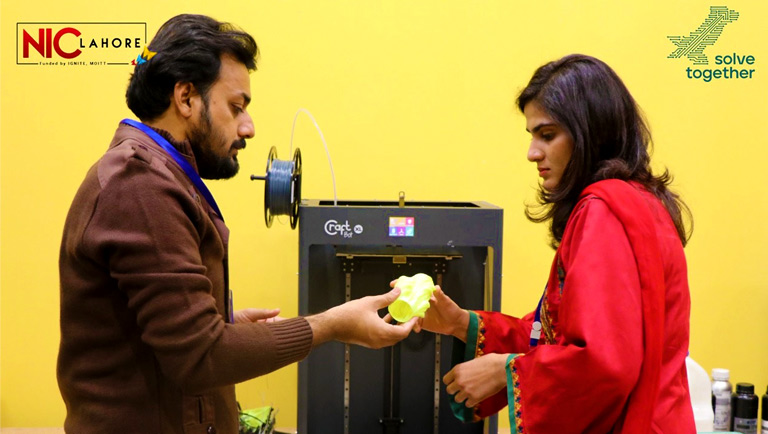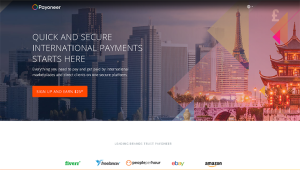
UNDP & NICL host Innovators in Plastic Waste Recycling
The National Incubation Center Lahore (NICL) at LUMS collaborated with the Innovation-Acceleration Lab at the United Nations Development Programme (UNDP) Pakistan to host SolutionsFest 2.0: Reimagining our Relationship with Plastics in Pakistan. This three-day event, which aimed to discuss, strategize and create solutions for plastic pollution, was held from November 29 to December 1 at NICL. UNDP & NICL host Innovators in Plastic Waste Recycling.
Beaconhouse partners with Innovators Garage
Beaconhouse celebrates International Teacher’s Day
SolutionsFest2.0 brought together people at the heart of the design process and curated a community-led problem-solving engagement opportunity to address the issue of plastic waste management in Pakistan. During the event, plastic problem-solvers explored materials, tested connectivity, worked with tools and mechanics, created structures, and improved on iterations by focusing on and responding to the problem of plastic waste generation and on creating a system for a circular economy.
Solutions included a mobile app to facilitate door-to-door collection of recyclable plastics; prototypes of interlocking plastic bricks to enable low-cost housing for slums; upcycled, aesthetic furniture; another solution to turn non-recyclable plastics from waste to energy; and eco-friendly, low-cost, specialized shoes made of recycled material for children born with clubfoot. All prototypes were created at NICL’s state-of-the-art, Makers Lab, which includes metal, CNC, PCB, wood, and 3D printing facilities for speedy, high-quality hardware solutions.
Mr. Ehsan Gul, Head of Experimentation at UNDP Pakistan Innovation-Acceleration-Lab, stated, “We need to rapidly prototype and experiment to find solutions for fixing the rapidly increasing plastic waste management problem in Pakistan. Soutionsfest 2.0 provided an opportunity to bring sustainability enthusiasts, local recyclers, private sector partners, etc. together to catalyze ideation and invention. The National Incubation Center Lahore was a natural choice for us as a key partner, because of their mission to enable Pakistani problem-solvers and their all-inclusive space, which offers critical prototyping facilities and fosters an environment of innovation and problem-solving.” UNDP & NICL host Innovators in Plastic Waste Recycling.
NICL stresses on innovation in SMEs at EU Pakistan Business Forum
Fatima Fertilizer addresses climate change at Expo 2020 Dubai
Farmer Convention for Wheat Cultivation – Rabi 2021-22
What is the Fastest Growing ISO Certification in the World?
In his keynote address, Mr. Hammad Naqi Khan, Director General of World Wildlife Fund (WWF) Pakistan, appreciated the efforts of the participants and organizers, “We saw a myriad of good ideas today, quite a few ideas were both viable and scalable. In terms of plastic use, radical change is important, but so are small steps in the right direction; for sectors like healthcare plastic usage may be imperative, but for most other sectors it boils down to mere convenience and that is where we need to intervene and make a change.” He emphasized the importance of taking a collaborative approach, and involving stakeholders across the value chain, from consumers to multinational corporations to the government to create synergies and tangible impact.
The National Incubation Center Lahore is a springboard for venture incubation and corporate innovation through an intersection of applied research, industry and talent, to solve Pakistan’s biggest problems. SolutionsFest 2.0 is part of a larger portfolio of the Innovation-Acceleration Lab, UNDP Pakistan. The Lab is a dedicated learning space to reimagine development solutions. The Lab, along with the country office, programs and partners, explores and experiments with new approaches, from ethnography to design, to find inclusive and human-centered approaches for meaningful change. In the last two years, the Innovation-Acceleration Lab has been exploring this issue with the learning question: how we can reimagine the relationship with plastics in Pakistan.

